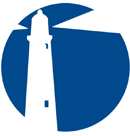
RARGOM Thematic Workshop On Integrated Multidisciplinary Modeling
RARGOM Thematic Workshop On Integrated Multidisciplinary Modeling
Prospectus 5/27/04
Objectives:
- Identify research questions and issues for which integrated modeling in the GOM and elsewhere could benefit scientists, regional managers and policy-makers
- Explore new opportunities for integrated modeling by
- Reviewing recent progress
- Identifying current limitations
- Evaluate future directions of research
- Determine the need for regional funding to support such efforts in the Gulf of Maine
Approach:
Integrated multidisciplinary modeling (herein defined as multi-purpose modeling efforts incorporating and integrating various modeling approaches) enables exploration of coastal ocean processes from a myriad of perspectives. These range from that of the basic research scientist who is investigating biological, biogeochemical or chemical processes that are influenced by circulation and hydrography to the coastal manager who needs, for example, insight into potential ecosystem effects of potentially harmful substances released into the coastal ocean . Substantial progress has been made already in circulation modeling that can be used to drive integrated biological process models and, to a much lesser extent, biogeochemical models. With the onset of ocean observation system funding it may be appropriate at this time to define the possibilities of the utilization of such systems to enhance and support the next generation of integrated modeling efforts in the Gulf of Maine. To this end RARGOM, in its mission to foster and enhance research on the Gulf of Maine, is conducting this thematic workshop to explore the opportunities and potential benefits to the region of such research.
As long-term advocates for the implementation of regional research programs addressing the needs of the Gulf of Maine region we wish to explore the above objectives from the following perspectives:
- What new or existing questions could be answered by a regional integrated modeling effort in the Gulf of Maine that are critical to management of the environmental quality and economic vitality of the Gulf of Maine region?
- What are the appropriate scales for such models? Some scientific and management problems (fisheries assessment, sustainable yield analysis) may be dependent on both large scale models (climate change, recruitment, regional harvesting) to smaller scale embayment size models (nutrient enrichment, pathogen distributions, contaminant retention) and presumably have real economic benefit to the region. Presumably models developed on different spatial scales will to some extent require observational networks on equally different spatial scales.
- What are the appropriate temporal resolutions of the models to meet management needs as well as observational needs?
Our goal is to bring together as many as possible perspectives to help identify new efforts in the region. Discussion of these and many other such questions brought to the table by the participants are designed to foster new collaborations between diverse interests and disciplines to generate new innovative approaches addressing such needs in the Gulf of Maine and, by analogy, in other coastal regions elsewhere. We specifically would welcome contributions that update participants on current state-of-the-art efforts in the region, identify limitations (observational data, knowledge of key processes (physical, biological and chemical) that are needed to further advance integrated modeling efforts, and mechanisms that foster such efforts (funding, lack of evidence of potential returns of such efforts). Through this effort we hope to identify the need for, and resultant benefits of, regional funding for such an effort be in the Gulf of Maine?
The thematic session format is a one-day informal workshop in which brief individual oral presentations addressing the above topics can be used to stimulate discussions pertinent to the thematic objectives. Poster presentations of recent research findings are encouraged. There will be no formal proceedings other than abstracts a brief synopsis of the findings of the workshop distributed to those attending and posted on the RARGOM web site http://zeus.mbl.edu/rargom/ as well as distribution to key stakeholders in the region.
Venue: Campus Center University of Massachusetts at Boston on July 15 th , 2004
Presentations:
Participants interested in presenting a concise brief overview of their research (5-10 minutes) to engender discussion should provide a brief title and abstract when registering. Presentations will be given in the morning followed by discussion and presentation of summary findings in the afternoon. Details on registration and the agenda for the workshop will be forthcoming on the RARGOM web site but it is anticipated that, to allow for reasonable time for discussion, the number of presentations may have to be limited. The steering committee will consider all submissions and if necessary select those most relative to the goals of the workshop described above. Posters can also be accommodated and are encouraged. Presentations should preferably be in Power Point although overheads can be accommodated as well.
Who should attend?
- Scientists who are actively working or would like to explore the possibilities of working with integrated multidisciplinary models in the future
- Managers and policy-makers who wish to be informed of the latest advances and potential applications of integrated multidisciplinary models to address issues of concern in the coastal marine environment
Steering Committee Members:
Gordon Wallace, gordon.wallace@umb.edu
Jeffrey Runge, jrunge@cisunix.unh.edu
Ata Bilgili, ata.bilgili@dartmouth.edu
James Manning, ata.bilgili@dartmouth.edu
RARGOM celebrates 20 years of service to the Gulf of Maine community
